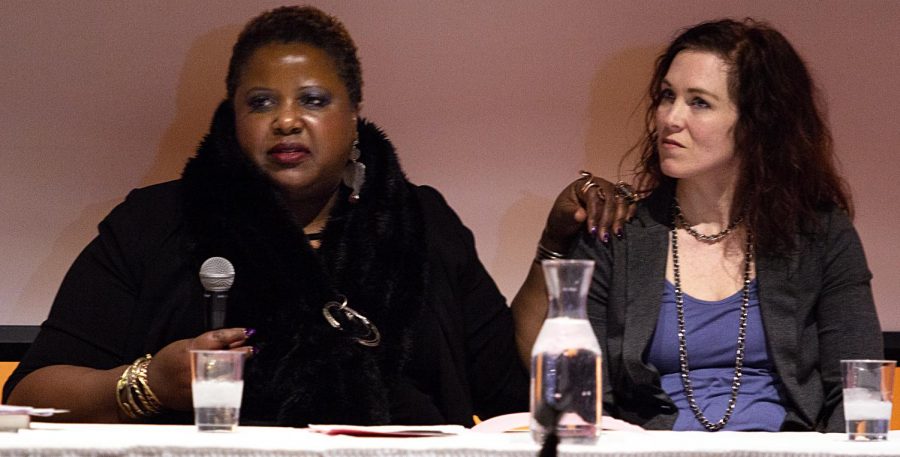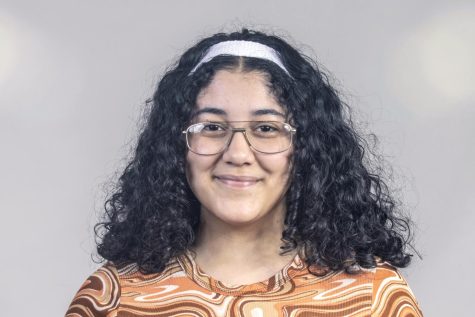RISE Chat panelists talk body shaming, positivity
Carole Collins Ayanlaja (left), an assistant professor in the Department of Educational Leadership, comforts Mindy Houser (right), a Mattoon resident and business owner of Sharp Iron Athletics, as they discussed their experiences with sexual assault and the impacts it had on their body images. Houser said how her body looked and what she wore began to enter the dialogue for her and impacted decisions she made later. “In celebration of my sister here, I’m going to say something,” Ayanlaja said. “When you shared about the elevator incident and was it your body, it wasn’t your body. Alright? We will not accept women being told that you wore the wrong outfit.”
February 25, 2020
Making Excellence Inclusive hosted the third RISE Chat of the academic year Monday, this time to discuss how body discrimination has affected the workplace and society.
The event featured short videos touching on body shaming and body positivity, followed by a discussion led by Eastern faculty and community members.
The panel was made up of communications professor Richard Jones, education professor Carole Collins Ayanlaja, athletic business manager Brian Carlin and Crossfit Mattoon gym owner Mindy Houser.
Though panelists came in with different areas of expertise and personal experiences, they all had something connecting them to the issue of body discrimination.
Being directed by specific questions, they shared personal accounts and specific information about how body discrimination has affected them in their lives, and how they think it is affecting society.
Kayla Granat, a sophomore majoring in English education, was particularly struck by all the personal stories shared at the event.
“They were tear-jerkers,” Granat said. “I was crying a little bit. Specifically, one of the panelists had made a comment about being curvy and being young, and having old grown men hit on you. That personal connection with the panelists (stuck with me) because I could relate to that.”
Jackie Hirn, a graduate student majoring in college student affairs, said she was also moved by the panelists’ stories felt she learned more through this event.
“Hearing all of these stories reflected through each of the panelists and each of the different facets really just solidifies that no one is that ideal body type. There really just needs to be change on what we accept as opposed to what we don’t,” Hirn said.
With this event, the panelists and hosts said they hoped that audience members learned about body shaming and feel inspired by the discussion.
Carlin said he hoped this event provided insight on how body discrimination affects everybody, especially people who are overlooked and that having these discussions inspires people.
“I hope (people) keep an open mind and that they find happiness within themselves. Don’t find happiness with body image,” Carlin said.
Catherine Polydore, chair of making excellence inclusive, said she hoped the RISE Chats continue to grow and that more students, faculty and community members attend them.
Polydore said she thinks these discussions are important to Eastern and the Charleston community.
“Making Excellence Inclusive (was founded) with the idea of promoting diversity, inclusion and equity issues on campus by being the interrupters, for example,” Polydore said. “One of the ways we think we can do that is by creating spaces to at least have conversations. If we can have those difficult conversations, then we believe that we can start slowly changing campus climate to become more inclusive.”
Videos were also played before the panel discussed the main issues.
One clip was from “Killing Us Softly,” an American documentary focusing on the effects of advertising on women’s self-image and the objectification of women’s bodies, and another clip was from “The Funny Thing About … being fat” by BBC Ideas in which comedian Sofie Hagen touched on the struggles of being fat, provided some history on the body positivity movement and her own ideas about the movement.
More RISE Chats are coming up touching on important issues such as the school-to-prison pipeline, the intersection of race and healthcare, and the history of Charleston with diversity.
Kyara Morales-Roriguez can be reached at 581-2812 or at knmoralesrodriguez@eiu.edu.

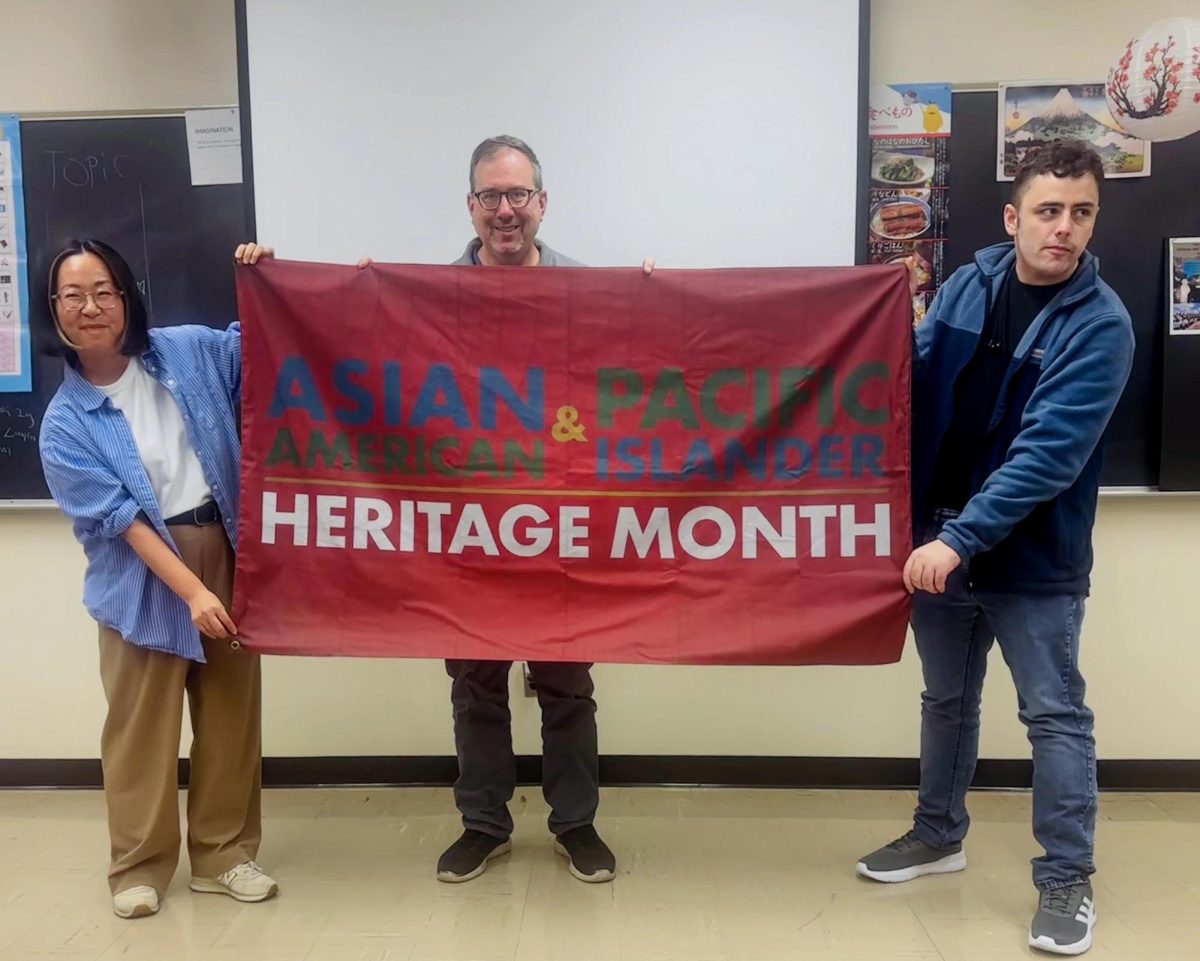




![[Thumbnail Edition] Eastern Illinois softball senior infielder Briana Gonzalez resetting in the batter's box after a pitch at Williams Field during Eastern’s first game against Southeast Missouri State as Eastern split the games as Eastern lost the first game 3-0 and won the second 8-5 on March 28.](https://www.dailyeasternnews.com/wp-content/uploads/2025/04/SBSEMO_11_O-1-e1743993806746-1200x692.jpg)



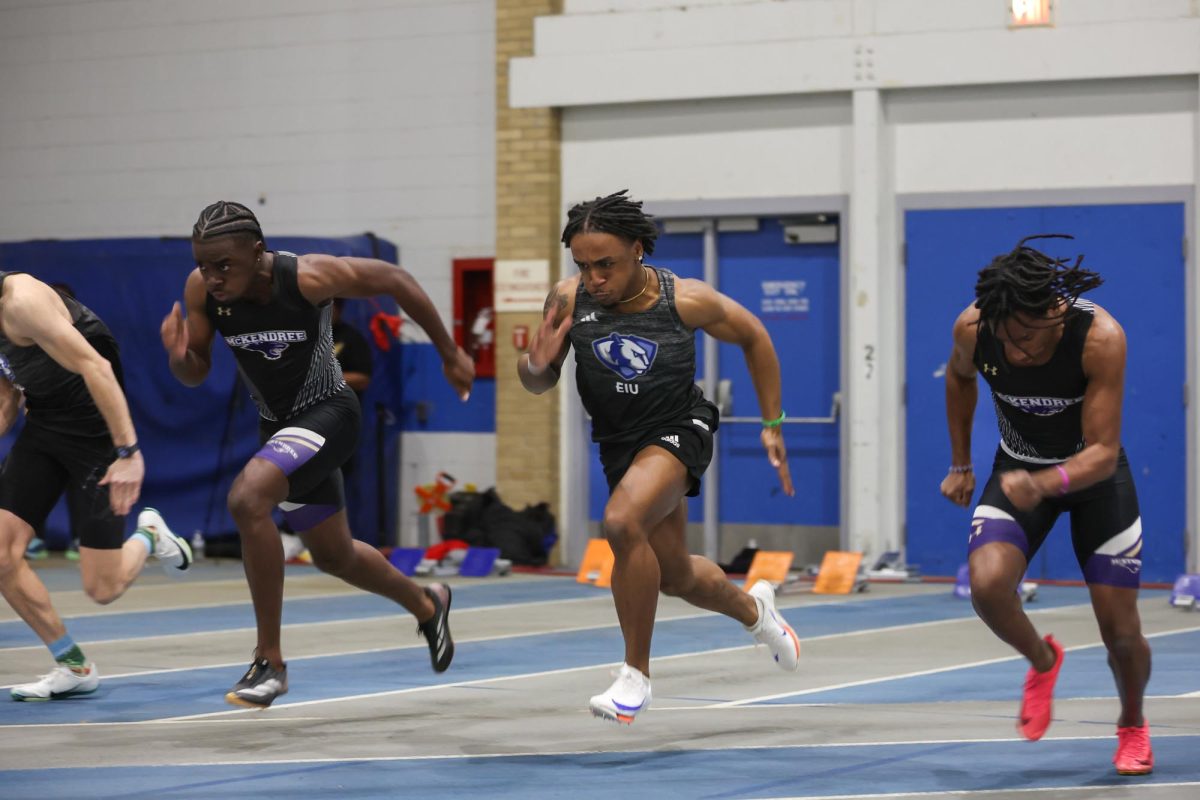


![[Thumbnail Edition] Junior right-handed Pitcher Lukas Touma catches at the game against Bradley University Tuesday](https://www.dailyeasternnews.com/wp-content/uploads/2025/03/MBSN_14_O-e1743293284377-1200x670.jpg)

![[Thumbnail Edition] Senior Foward Macy McGlone, getsw the ball and gets the point during the first half of the game aginst Western Illinois University,, Eastern Illinois University Lost to Western Illinois University Thursday March 6 20205, 78-75 EIU lost making it the end of their season](https://www.dailyeasternnews.com/wp-content/uploads/2025/03/WBB_OVC_03_O-1-e1743361637111-1200x614.jpg)























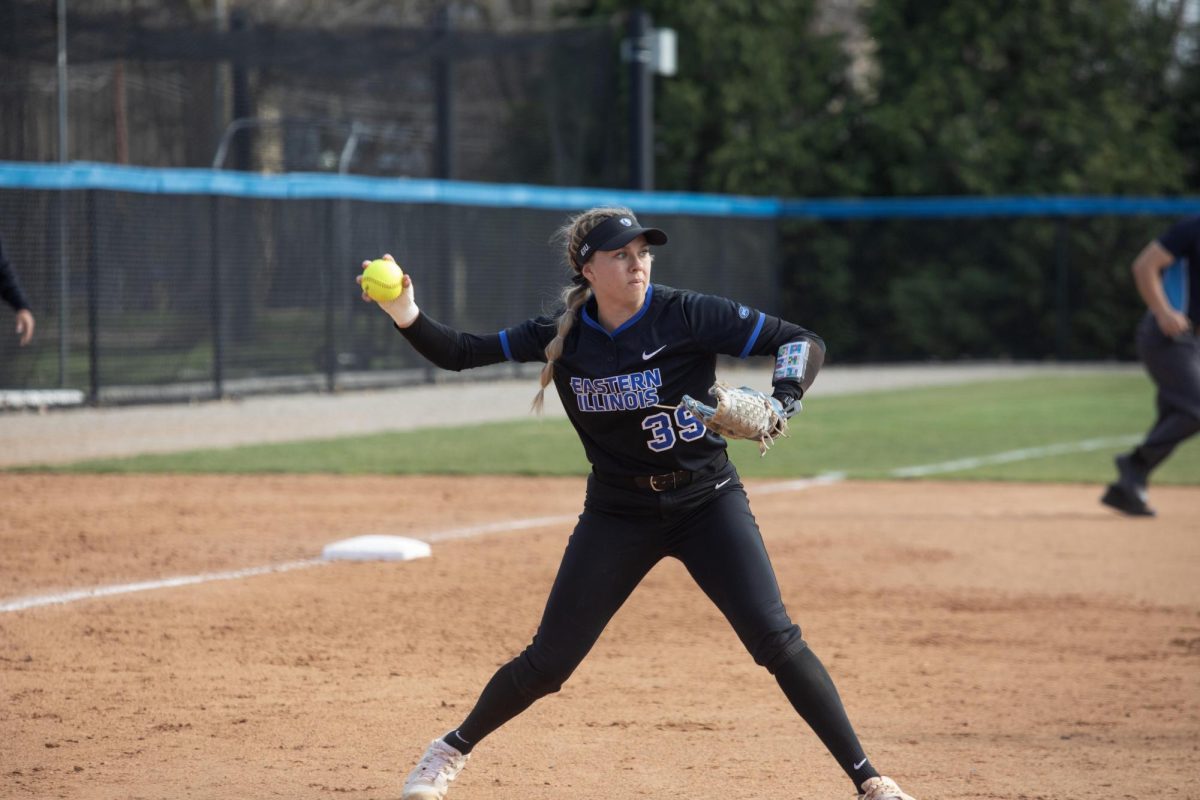















![The Weeklings lead guitarist John Merjave [Left] and guitarist Bob Burger [Right] perform "I Am the Walrus" at The Weeklings Beatles Bash concert in the Dvorak Concert Hall on Saturday.](https://www.dailyeasternnews.com/wp-content/uploads/2025/03/WL_01_O-1200x900.jpg)
![The team listens as its captain Patience Cox [Number 25] lectures to them about what's appropriate to talk about through practice during "The Wolves" on Thursday, March 6, in the Black Box Theatre in the Doudna Fine Arts Center in Charleston, Ill.](https://www.dailyeasternnews.com/wp-content/uploads/2025/03/WolvesPre-12-1200x800.jpg)













